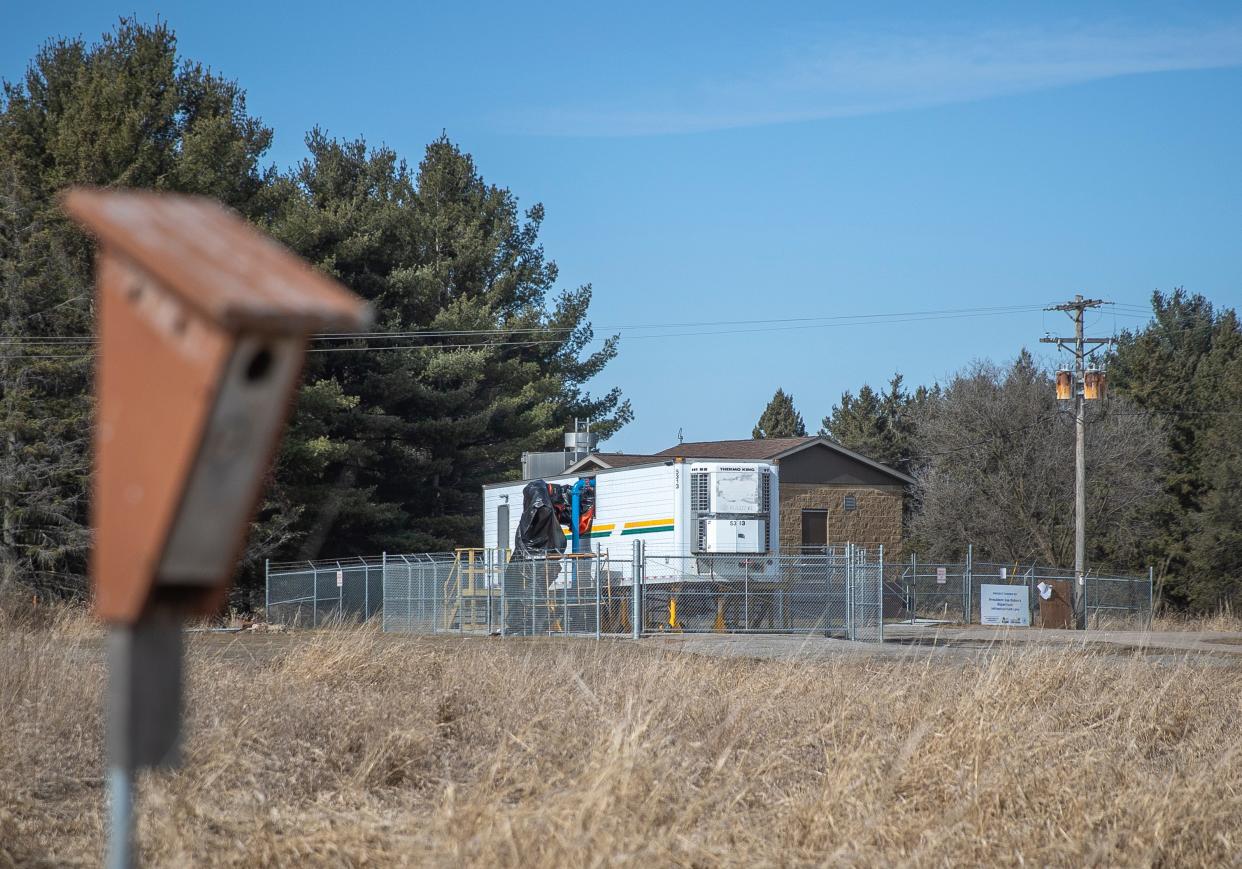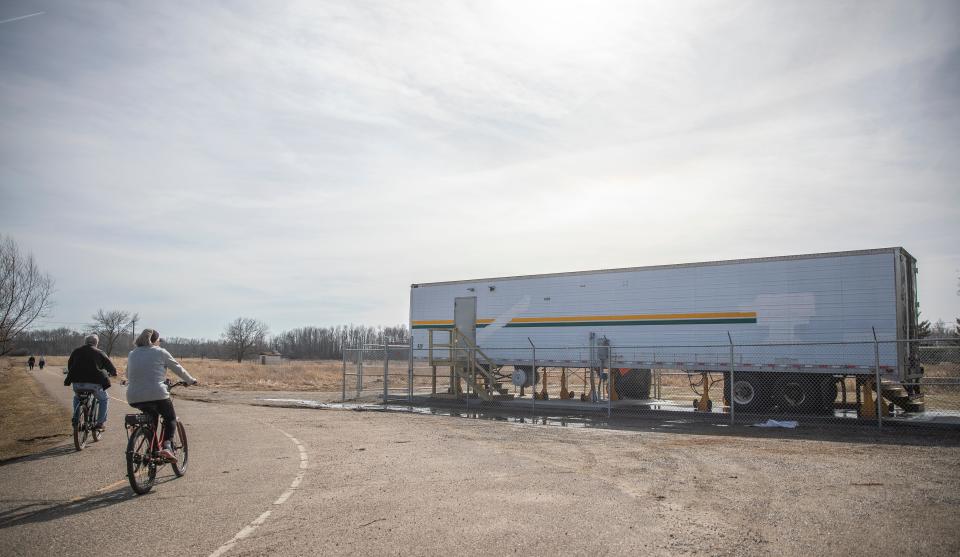Temporary PFAS filtration system ends 20-month shutdown of four Marshfield wells

MARSHFIELD – Marshfield residents have a fully functioning water system again after four city wells had been shut down for more than 20 months when elevated PFAS levels were detected.
Marshfield Utilities installed a temporary PFAS filtration system and after a two-day trial run at the beginning of February, the affected four wells were put back in operation and their daily average of 1.2 million gallons of water was returned to the system.
“You can sleep easy at night now,” John Richmond, utility water manager, said in a Feb. 12 Marshfield Utility Commission meeting.
The filtration system is contained in a semi-truck trailer that is mounted on a cement pad near the bike path leading south from Griese Park to the Mill Creek Industrial Park, which is near the four wells in that area.
In May 2022, Marshfield Utilities received results from a voluntary well test that revealed the significant presence of PFAS at the South Side Booster entry point. The utility shut the booster station and the four wells down and operated more than 20 months without the daily 1.2 million gallons the wells typically provided.

In July 2023, the city approved a contract to rent and install a WaterSurplus Temporary PFAS Treatment Trailer. The trailer contains eight tanks in which water interacts with an anion exchange resin in a process similar to a water softener to remove PFAS from the water.
The Marshfield Utility Commission considered three primary options before settling on the temporary treatment system. The other two choices were to drill new wells or to build a permanent treatment facility. A new well would be expensive to dig and there is a potential to find another source of PFAS in it after it has been dug. The utility’s staff recommended the temporary filter system while PFAS science continues to evolve and potentially develops a cheaper permanent filter system than is currently available.
The resin in the temporary filter system is estimated to last at least two years. The utility will work toward plans that may involve a permanent filtration facility or the drilling of new wells.
The city of Wausau also uses anion exchange resin to remove PFAS from its water. Due to Wausau's greater volume of water usage, their resin must be replaced annually. In 2023, Wausau Water Works replaced resin that had reached the end of its lifespan and is exploring disposal options. Some of their spent resin has been sent to research labs to explore recycling potential. Wausau is expected to complete construction of a permanent granular activated carbon filtration system in 2024.
More local news: Vending machines popping up across central Wisconsin are helping to save lives. Find out how.
More local news: Cattails Place offers home away from home for cancer patients at Marshfield Clinic Health System
Erik Pfantz covers local government and education in central Wisconsin for USA-TODAY NETWORK-Wisconsin and values his background as a rural Wisconsinite. Reach him at epfantz@gannett.com or connect with him on X (formerly Twitter) @ErikPfantz.
This article originally appeared on Marshfield News-Herald: PFAS filtration system ends 20-month shutdown of four Marshfield wells

